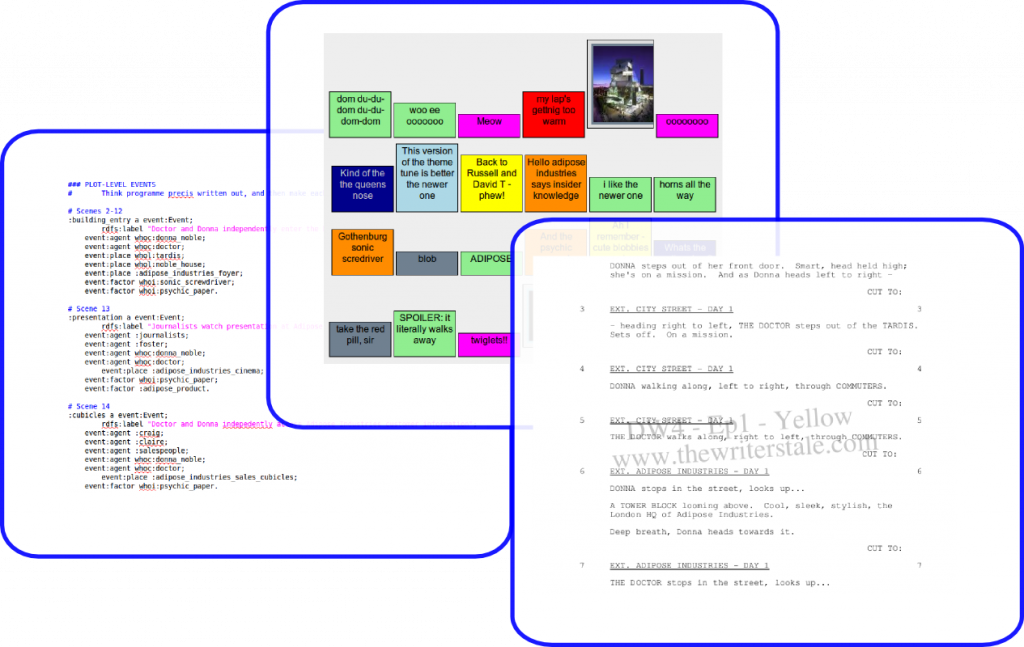
I have three representations of Dr Who. S4E1 sitting in front of me:
- A Semantic annotation of the episode based on the BBC Stories Ontology, both by Michael O. Jewell, Paul Rissen, and Toby Harris{{1}}.
- The script for the episode, by Russel T Davies
- A transcript of a couple of very rowdy screenings of the episode I organised at The People Speak HQ during which people heckled at the screen using short messages, images and video.
What’s hurting my brain at the moment is a question of representation. In this triple, if ‘represents’ is the predicate, which is the subject and which is the object?
- Is the Semantic annotation a representation of Dr Who S4E1: Partners in Crime the TV show, or is it a representation of the experience and interpretation of the person watching and annotating it? Or both?
- In the same way, is the transcript of the conversation a representation of people’s experience of watching the episode and making social sense of it together, but with a lot more context?
- Is the episode itself a representation of the shooting script?
Which philosophical texts can I turn to to help me make sense of this?
But most crucially (for my purposes), how can I best understand the similarities and differences between 1 (the semantic annotation) and 3 (the conversational transcript)?
I had a few ideas about this, mostly based on text-mining the conversation transcript via concept-extraction services such as LUpedia or Alchemy API to see if snatches of conversation can identify related entities within the annotation’s timeline, but feedback from the wonderful Jo Walsh was sceptical of this approach.
Basically, her critique was that
- Using text-mining/concept extraction privileges text, whereas the heckle stream is very visual, and that seems important.
- Entity-recognition/tagging services will yield a very variable quality of metadata. They’re designed to look for something specific in text and match it, and tend to require quite a bit of context (more than 140 characters of text)
- Asking the question “to what extent can this be considered metadata” will get very inconclusive answers, which will question the point of asking the question in the first place.
I think I agree with point 3 – which questions the point of this blog post, but I think I still need some kind of bottom-up analysis of the relatedness of the data, and although I’d like to just disregard the slightly solipsistic question of what is representing what, it would be nice to be able to attribute any philosophical assertions to someone other than myself!
[[1]] Here’s the OWL for the episode. Here’s the n3 formatted annotation of the episode [[1]]